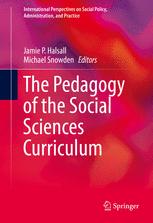

Most ebook files are in PDF format, so you can easily read them using various software such as Foxit Reader or directly on the Google Chrome browser.
Some ebook files are released by publishers in other formats such as .awz, .mobi, .epub, .fb2, etc. You may need to install specific software to read these formats on mobile/PC, such as Calibre.
Please read the tutorial at this link: https://ebookbell.com/faq
We offer FREE conversion to the popular formats you request; however, this may take some time. Therefore, right after payment, please email us, and we will try to provide the service as quickly as possible.
For some exceptional file formats or broken links (if any), please refrain from opening any disputes. Instead, email us first, and we will try to assist within a maximum of 6 hours.
EbookBell Team

0.0
0 reviewsThis far-sighted volume describes emerging trends and challenges in university-level social sciences education in an era marked by globalization, austerity, and inequity. It spotlights solution-focused and interdisciplinary methods of teaching, developed to match influential academic ideas, such as self-directed learning and learning in communities, as students seek to engage with and improve conditions in their immediate environments. Chapters offer real-world applications of foundational concepts in the modern practice of teaching, learning, and curriculum development. Accordingly, the editors emphasize the relationship between pedagogy and curriculum, as both are critical in encouraging student autonomyand promoting optimum academic and societal outcomes.
Included in the coverage:
· Towards a concept of solution-focused teaching: learning in communities.
· Heutagogy and the emerging curriculum.
· Collaborative working in the statutory and voluntary sectors.
· Delivering a community development curriculum to students with multiple identities.
· Photography and teaching in community development.
· A model for change: sharing ideas and strategies.
The Pedagogy of the Social Sciences Curriculum will inspire sociologists, social workers, and health and sociology educators to take a deeper role in community well-being as students, faculty, and communities collaborate to make lasting contributions to society.